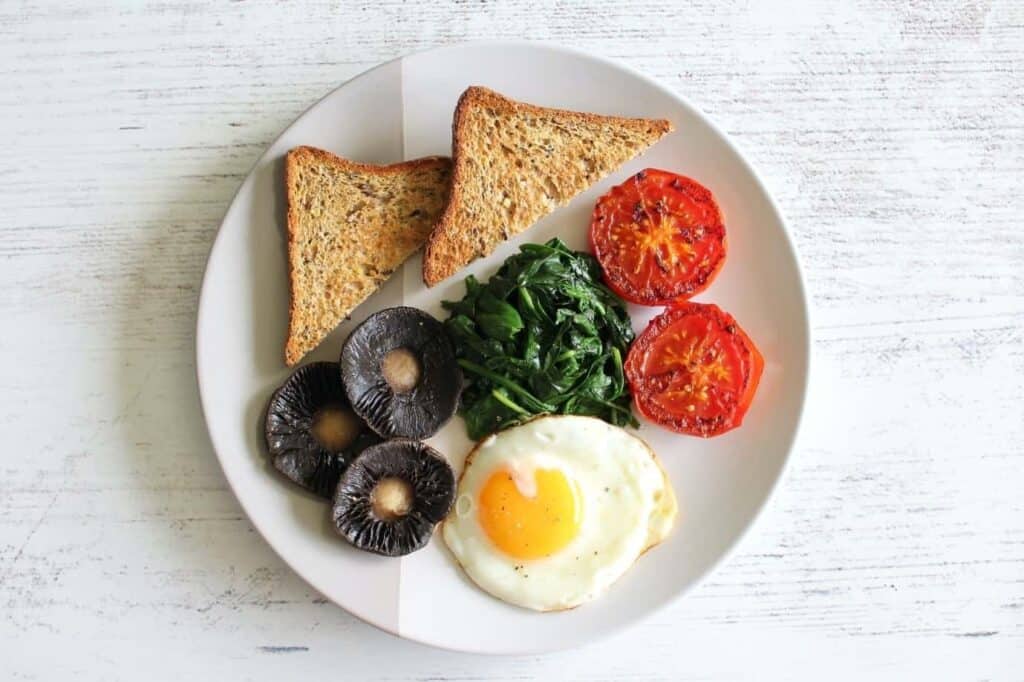Healthy breakfast habits to boost your energy

We’ve all heard it before, breakfast is the most important meal of the day. But between busy mornings, school drop-offs, and the temptation to just grab a coffee on the go, it’s often the first thing to fall off the list. The truth is, a healthy breakfast can do wonders for your energy, focus and mood, setting you up for a more productive, balanced day.
Whether you’re an early riser or someone who hits the snooze button a few times, incorporating a healthy breakfast into your routine can have great benefits for both your body and mind. Let’s explore how.
Why breakfast matters
After a solid night’s sleep, your body is in a fasting state. You’ve gone hours without food, and your energy tank is running low. Eating a nutritious breakfast helps to replenish your body’s glucose levels, providing the fuel needed to start your day. Research shows that eating breakfast can improve concentration, support better mood and energy levels, and even help with managing weight over time. It’s also been linked to a lower risk of chronic conditions like type 2 diabetes and heart disease.1
For kids and young people, the benefits are even greater. A study published by The University of New South Wales found that students who eat breakfast demonstrate better concentration, greater motivation and academic performance, and more positive learning outcomes compared to those who skip it.2

What makes a healthy breakfast?
A balanced breakfast should include a combination of:
- Protein: Supports muscle and organ health. Sources include eggs, yoghurt, milk, nuts, and legumes.
- Wholegrains: Provide essential fibre and sustained energy. Options include oats, wholemeal bread, and wholegrain cereals.
- Healthy fats: Aid in nutrient absorption and keeps you feeling fuller for longer. Incorporate foods like avocado, nuts, seeds, and olive oil.
- Fruits and vegetables: Rich in vitamins, minerals, and fibre. Add fresh or frozen fruits and veggies to smoothies, cereals, or as side dishes.
Starting your day with 20-30 grams of protein can help you feel fuller for longer and support sustained energy through the morning. Examples include eggs, cottage cheese, Greek yoghurt, or plant-based options like tofu and quinoa. Looking for a delicious and nutrient rich breaky? Discover our protein-packed smashed pea breakfast bowl recipe.
Tips for making breakfast a habit
Mornings can be busy, but with a bit of planning, you can make breaky a seamless part of your day. Here are some healthy breakfast habits to help:
- Plan ahead: Create a meal plan and a shopping list to ensure you have quick and healthy breakfast options available.
- Meal prep: Set aside some time to prepare meals in advance. Some great options include breakfast muffins, veggie fritters, or overnight wheat biscuits, prepared in advance for grab-and-go convenience.
- Use the freezer: Batch-cook meals and freeze them for easy breakfast options on busy mornings. Keep some frozen berries to add to cereals and smoothies.
- Adjust your routine: Setting your alarm 10 minutes earlier can provide some extra time to enjoy a balanced breaky without feeling rushed.
- Take it on-the-go: Portable choices like boiled eggs, breakfast wraps, or protein smoothies stored in sealed containers are perfect for taking to work, school or uni.
Quick and healthy breakfast ideas
Here are some other simple yet nutritious breakfast recipes to try:
- Overnight oats: Combine rolled oats with milk or a dairy-free alternative, chia seeds, and your choice of fruits. Refrigerate overnight and top with nuts or seeds in the morning.
- Wholegrain toast with mushrooms and eggs: Top wholegrain toast with mushroom, tomato and eggs for a high-protein breakfast option.
- Smoothie bowl: Blend spinach, banana, Greek yoghurt, and a handful of berries. Pour into a bowl and top with granola and sliced almonds.
- Berry and yoghurt parfait: Layer oats with yoghurt, nuts, seeds and seasonal berries for added vitamins and minerals.
- Homemade breakfast muffins: Bake healthy breakfast muffins using wholemeal flour, grated vegetables like zucchini or carrot, and add nuts or seeds for extra nutrients.
For more healthy breakfast inspiration, visit our recipes.

The impact of skipping breakfast
Skipping breakfast can seem like the easiest option when you’re time poor. However, it can leave you feeling low on energy, make it harder to concentrate, and might even lead to overeating later in the day. A study from The Kids Research Institute Australia also found that students who skip breakfast are more likely to have lower academic performance.3
On top of that, skipping breakfast is often linked to other habits, like lower physical activity and poorer food choices.
Starting your day with a nutritious breakfast is one of the easiest ways to boost your health and wellbeing. With a bit of planning and the right food choices, you can experience all the benefits of a brekkie that energises, focuses, and nurtures your body and mind. Make it a habit, and see the positive changes it brings to your day.
Sources:
- Better Health Victoria. (2023). Why Breakfast is Important. https://www.betterhealth.vic.gov.au/health/healthyliving/breakfast
- UNSW. (2024, April). Breakfast Impacts Student Success — But Not in the Way You Might Think. https://www.unsw.edu.au/newsroom/news/2024/04/breakfast-impacts-student-success-but-not-in-the-way-you-might-think#:~:text=%E2%80%9COur%20findings%20highlight%20that%20eating,and%20achieved%20better%20test%20scores
- The Kids Foundation. (2025). Kids Who Skip Breakfast Have Poorer NAPLAN Results. https://www.thekids.org.au/news–events/news-and-events-nav/2025/march/kids-who-skip-breakfast-have-poorer-naplan-results/#:~:text=Study%20of%20nearly%2030%2C000%20students,students%20ate%20breakfast%20every%20day
Acknowledgement
Content was developed in conjunction with Queensland Country Women’s Association Country Kitchens (QCWA) program.


